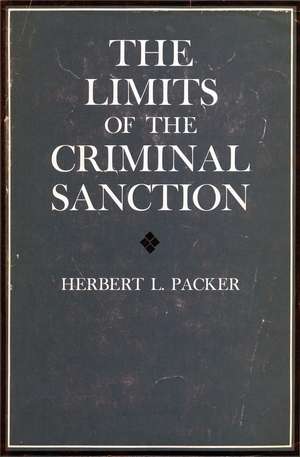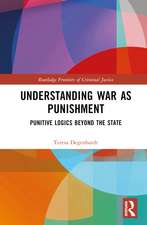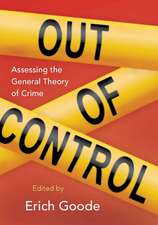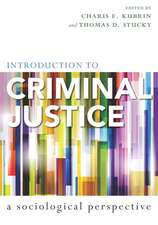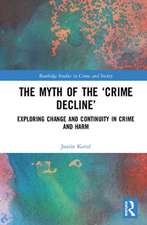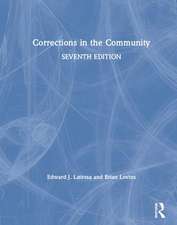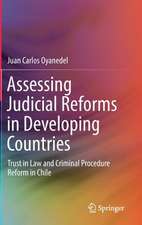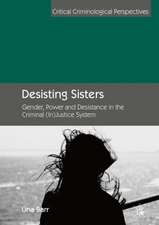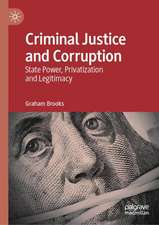The Limits of the Criminal Sanction
Autor Herbert Packeren Limba Engleză Paperback – 31 mai 1968
The argument of this book begins with the proposition that there are certain things we must understand about the criminal sanction before we can begin to talk sensibly about its limits. First, we need to ask some questions about the rationale of the criminal sanction. What are we trying to do by defining conduct as criminal and punishing people who commit crimes? To what extent are we justified in thinking that we can or ought to do what we are trying to do? Is it possible to construct an acceptable rationale for the criminal sanction enabling us to deal with the argument that it is itself an unethical use of social power? And if it is possible, what implications does that rationale have for the kind of conceptual creature that the criminal law is? Questions of this order make up Part I of the book, which is essentially an extended essay on the nature and justification of the criminal sanction.
We also need to understand, so the argument continues, the characteristic processes through which the criminal sanction operates. What do the rules of the game tell us about what the state may and may not do to apprehend, charge, convict, and dispose of persons suspected of committing crimes? Here, too, there is great controversy between two groups who have quite different views, or models, of what the criminal process is all about. There are people who see the criminal process as essentially devoted to values of efficiency in the suppression of crime. There are others who see those values as subordinate to the protection of the individual in his confrontation with the state. A severe struggle over these conflicting values has been going on in the courts of this country for the last decade or more. How that struggle is to be resolved is a second major consideration that we need to take into account before tackling the question of the limits of the criminal sanction. These problems of process are examined in Part II.
Part III deals directly with the central problem of defining criteria for limiting the reach of the criminal sanction. Given the constraints of rationale and process examined in Parts I and II, it argues that we have over-relied on the criminal sanction and that we had better start thinking in a systematic way about how to adjust our commitments to our capacities, both moral and operational.
We also need to understand, so the argument continues, the characteristic processes through which the criminal sanction operates. What do the rules of the game tell us about what the state may and may not do to apprehend, charge, convict, and dispose of persons suspected of committing crimes? Here, too, there is great controversy between two groups who have quite different views, or models, of what the criminal process is all about. There are people who see the criminal process as essentially devoted to values of efficiency in the suppression of crime. There are others who see those values as subordinate to the protection of the individual in his confrontation with the state. A severe struggle over these conflicting values has been going on in the courts of this country for the last decade or more. How that struggle is to be resolved is a second major consideration that we need to take into account before tackling the question of the limits of the criminal sanction. These problems of process are examined in Part II.
Part III deals directly with the central problem of defining criteria for limiting the reach of the criminal sanction. Given the constraints of rationale and process examined in Parts I and II, it argues that we have over-relied on the criminal sanction and that we had better start thinking in a systematic way about how to adjust our commitments to our capacities, both moral and operational.
Preț: 345.89 lei
Nou
Puncte Express: 519
Preț estimativ în valută:
66.19€ • 69.24$ • 54.98£
66.19€ • 69.24$ • 54.98£
Carte tipărită la comandă
Livrare economică 02-16 aprilie
Preluare comenzi: 021 569.72.76
Specificații
ISBN-13: 9780804708999
ISBN-10: 0804708991
Pagini: 388
Dimensiuni: 152 x 229 x 30 mm
Greutate: 0.59 kg
Ediția:1
Editura: Stanford University Press
Colecția Stanford University Press
ISBN-10: 0804708991
Pagini: 388
Dimensiuni: 152 x 229 x 30 mm
Greutate: 0.59 kg
Ediția:1
Editura: Stanford University Press
Colecția Stanford University Press
Recenzii
"The academic fascination with Herbert Packer's two models of the criminal process has yielded an amazing thread of scholarship involving a variety of academic disciples, linking various topics, offering interesting insights on many criminal justice institutions and phenomena, and spanning more than four decades . . . That this enthusiasm and engagement persist to this day is proof that criminal justice scholarship indeed stands on the shoulders of giants."—Hadar Aviram, Law & Social Inquiry
